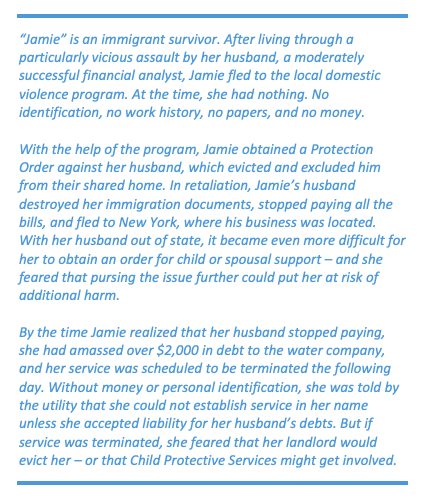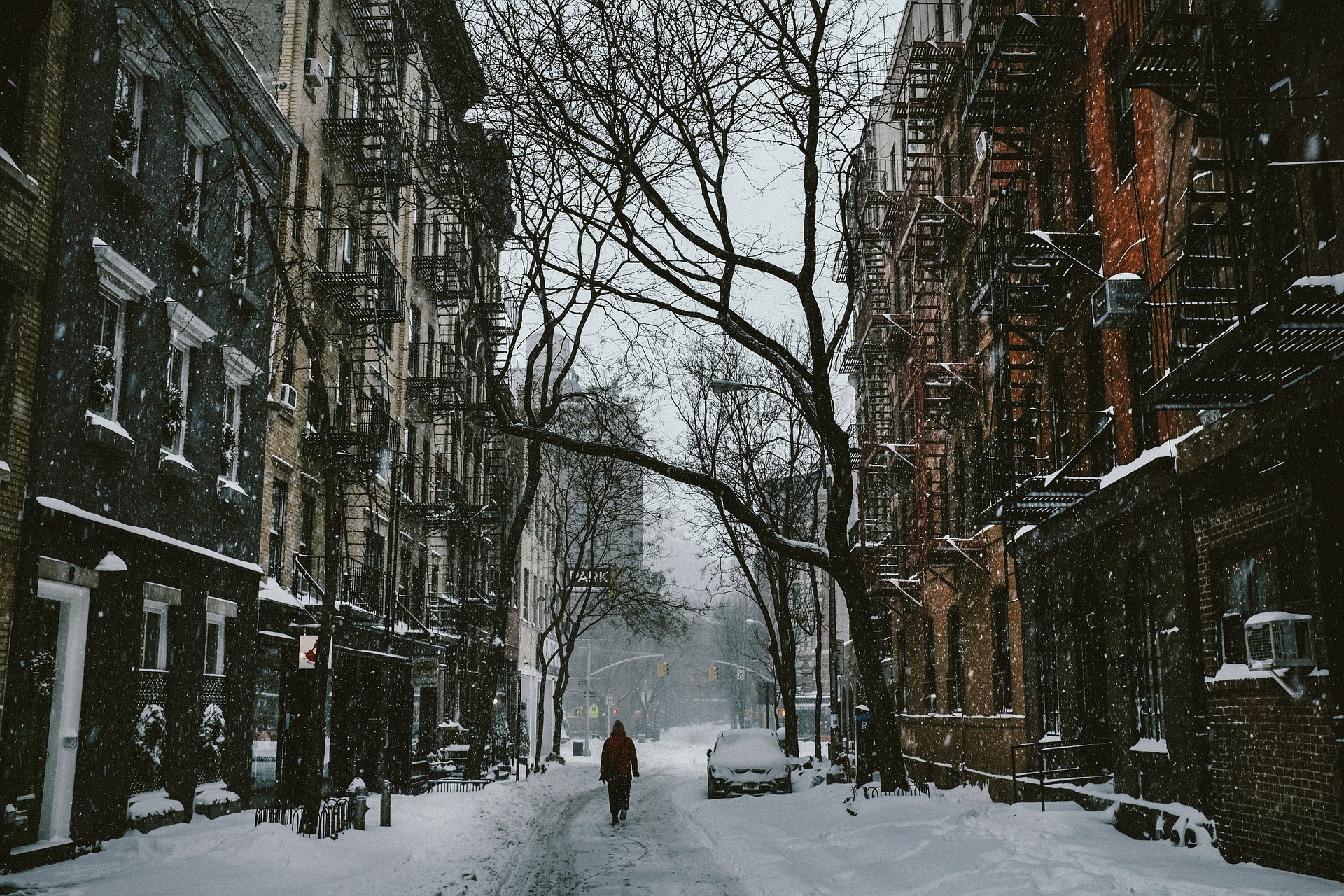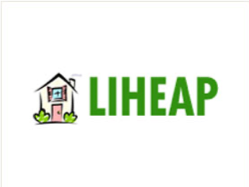By Elizabeth Marx, Supervising Attorney with the Pennsylvania Utility Law Project (PULP)
Utility service is a critical part of establishing a safe and healthy home. As my colleague often says, utilities make our homes livable. They bring warmth and light to our living rooms, provide refrigeration for food and heat to cook our meals, and deliver clean water to bathe ourselves and our children.
As temperatures plunge across most of the country, exposure to extreme weather and vulnerability to illness and lack of food stability increase. It is therefore particularly important to focus in on how we can assist survivors to connect and maintain essential utility services through the cold winter months – and throughout the year.
Survivors Face Unique Barriers to Establishing and Maintaining Utility Services
Security deposits, identification requirements, and utility debts are common challenges for most economically vulnerable households. But for economically vulnerable survivors, these common challenges can pose particularly intractable barriers to safety and establishing a safe and healthy home.
 The unfortunate reality is that the inability to connect and maintain utility service often causes survivors to make the impossible choice between returning to an abuser or experiencing periods of homelessness. Indeed, it is not a coincidence that intimate partner violence – and the consequential inability of survivors to secure safe housing – is the “primary cause of homelessness” for women in this country (National Law Center on Homelessness & Poverty; Safe Housing Partnerships).
The unfortunate reality is that the inability to connect and maintain utility service often causes survivors to make the impossible choice between returning to an abuser or experiencing periods of homelessness. Indeed, it is not a coincidence that intimate partner violence – and the consequential inability of survivors to secure safe housing – is the “primary cause of homelessness” for women in this country (National Law Center on Homelessness & Poverty; Safe Housing Partnerships).
Perpetrators regularly use utility service to retaliate against survivors if or when they try to leave – canceling service to a former shared residence without consent, stopping payment on the service, and/or allowing significant debts to accrue.
When economic abuse is used by an abusive partner, survivors may not even be aware of the mounting utility debt until a termination notice is posted to the door or the service is shut off. And if they are aware, they are often powerless to resolve the problem because they do not have access to resources and information necessary to prevent the utility shut off.
In many states, it does not matter whether utility debt is accrued in the survivor’s name: anyone who lived in a residence when debt was accrued can be held jointly liable. This type of mutual liability – sometimes referred to as “occupant liability” – can compound a survivor’s economic interdependence on the abuser – if they leave, will they be able to turn the utilities on at a new location? Will they lose custody of their children because of failure to connect and maintain electricity, heat and/or water service?
A few states, including Pennsylvania, Illinois, Kansas, Louisana, Texas, Massachuttes, New Hampshire, and Virginia, have enacted laws that provide some protections for survivors (LIHEAP Clearinghouse, 2017). But these laws are few and far between, and implementation has been slow.
The Consequences Are Severe if a Survivor Cannot Establish and Maintain Utility Service
 The inability to connect and maintain heat, electricity, and water service can create a host of negative consequences for a survivor and their children, including:
The inability to connect and maintain heat, electricity, and water service can create a host of negative consequences for a survivor and their children, including:
Landlord Refusals / Eviction
- Landlords often refuse to rent to a family that cannot establish service in their name when they sign the lease, and may file an eviction proceeding if a tenant does not maintain service pursuant to the terms of a lease.
Disqualification for / Loss of Public Housing Assistance
- While victims of domestic violence are often prioritized for public housing assistance, the inability to connect to service may also disqualify a survivor from receiving public housing assistance, and will result in the loss of housing assistance if service is later terminated (see Public Housing Occupancy Guidebook and Housing Choice Voucher Program Guidebook).
Transfer or Loss of Child Custody / Involvement by Child Protective Services
- In many states, the loss of electricity, heat, or water/wastewater service will trigger involvement of child protective services. In many cases, children are temporarily placed with a family member or foster care until service can be restored.
- The loss of utilities can also form the grounds for a temporary or permanent transfer of child custody – sometimes even to an abusive parent.
Short and Long-Term Health Impacts
- Living without utility service can have serious and substantial short and long-term health impacts on survivors and their children.
- The loss of heating service, for example, often forces families to turn to unsafe alternatives such as portable space heaters, generators, or an oven to heat their home. The loss of heat can also increase the frequency and duration of illnesses, cause or exacerbate asthma, and can result in hypothermia. It may also disrupt sleep patterns, causing both cognitive and behavioral issues for children at school.
- The loss of water service is likewise dangerous, as it causes serious hygiene issues and can lead to the condemnation of a property. Indeed, without water, you cannot even flush a toilet – let alone take a shower.
Utilities are Increasingly Unaffordable – Especially for Black and Latinx Survivors
Increasingly, utility services – including electricity, heat, water, and sewer – are unaffordable for large segments of our population (National Association for the Advancement of Colored People, 2017; American Council for an Energy-Efficient Economy, 2016). Black and Latinx communities face the brunt of increasing costs, as they often have a disproportionately higher energy or utility burden (the percentage of income that a household pays for energy costs) and, consequently, have a disproportionately higher risk of utility termination for nonpayment. This is in large part due to the fact that individuals from these communities have a disproportionately lower median household income and a higher rate of poverty than white households. Individuals with limited income are, in turn, more likely to live in older, less efficient homes, and do not have the resources to make investments in energy efficiency measures (National Association for the Advancement of Colored People, 2017; American Council for an Energy-Efficient Economy, 2016). As the American Council for an Energy Efficient Economy recently found:
There is also mounting evidence that, in some states, Black and Latinx consumers in competitive electric and natural gas states are singled out by energy marketers selling higher cost, variable rate energy services (Baldwin, 2018; Lynch, 2018).
Resources Are Available to Help in Most States
 The Low Income Home Energy Assistance Program (LIHEAP) is available in most states to help offset the high costs of heat in the winter or, in some states, high cooling costs through the summer. But even with assistance of LIHEAP, low income households still struggle to maintain utility costs.
The Low Income Home Energy Assistance Program (LIHEAP) is available in most states to help offset the high costs of heat in the winter or, in some states, high cooling costs through the summer. But even with assistance of LIHEAP, low income households still struggle to maintain utility costs.
A number of states offer additional utility assistance programs to help fill the gap, but the programs available are often under-funded, under-utilized, or insufficiently designed to address survivors’ unique utility needs.
Advocates in every state should seek to learn about the programs that are available in your state and to partner with others working on utility affordability issues to push for expanded assistance to meet the unique and often complex needs of survivors and their families.
If you are unsure what programs may be available in your state, try contacting the following agencies or organizations for assistance and resources:
- Local Utility Services
- Public Utility or Public Service Agency or Commission
- Legal Services Organizations
- Community Action Agencies
- Attorney General or Office of Consumer Advocate
There are Numerous Avenues for Utility Advocacy at All Levels
As advocates, we must equip ourselves with the tools to fight energy insecurity, and ensure that all survivors have access to life’s most essential services. There are a number of things – both large and small – that advocates at all levels can do to help alleviate the barriers survivors face when attempting to connect and maintain utility service.
Perhaps the most important step that a domestic violence advocate can take is to develop and nurture collaborative partnerships with organizations and agencies that work in the utility space, and are familiar with the rights and protections currently available as well as opportunities that may be in place to leverage or reform existing policies. Domestic violence advocates have a lot on their plate and they do not have to do this alone. Strong partnerships between allied agencies can help lessen the heavy load, and ensure meaningful and well-informed policies are developed to serve the unique utility needs of victims of domestic violence.
Client Intervention and Prevention Strategies
- Partner with a legal services provider to provide direct representation to survivors facing utility terminations or who cannot connect to service at a new residence.
- Adjust your intake to ask survivors whether they are experiencing difficulty paying for utility services, are at risk of a utility termination or have old outstanding utility bills.
- Encourage survivors to request that utility relief be included as part of a Protection From Abuse Order.
- Integrate utility counseling into core program services to ensure that survivors are provided information about available utility programming – as well as their rights as a utility consumer.
- Invite attorneys from your local or statewide legal services organization or other substantive experts to provide utility training to advocates and/or clients.
- Host a utility clinic, in conjunction with your local law school or other partners, to assist survivors with utility issues.
Policy Strategies
- Work with the local housing authority to eliminate criteria that excludes applicants if they have prior utility debts, and to put in place reasonable intervention policies and/or referral procedures to prevent the loss of housing assistance if a survivor’s utilities are terminated.
- Create a utility task force, in conjunction with other legal services and/or community action agencies, to identify shared priorities and solutions for utility policy and program reform.
- Work with the local public utility to establish a consumer advisory council or committee to recommend policy changes that will help survivors of domestic violence.
- Intervene in proceedings before your state’s Public Service or Public Utility Commission to push for new and/or expanded utility assistance programs and other critical utility reforms.
- Engage with your state and local agencies and legislature to push for expanded bill payment and weatherization assistance programming that can help reduce a household’s energy costs over the long term.
- Utilities are complex, and the regulatory environment can be intimidating for advocates that do not have a background in administrative advocacy. It is therefore critical that advocates reach out to experts in utility regulation to help identify workable strategies and solutions for your state.
For more information:
National Energy Assistance Referral (NEAR) – 1-866-674-6327; TTY 1-866-367-6228
National Energy Assistance Directors’ Association (NEADA)














